Growing up with Alopecia
Ankita Suri, 38, was diagnosed with androgenic alopecia at a very young age. She started losing her hair in grade nine, around 1999, when awareness about such conditions was low and society was not very accepting. As a 15-year-old, she faced criticism, hurtful comments, and even went through periods of isolation. But Ankita found hope in the people around her who supported her and showed acceptance. Their encouragement helped her regain confidence and, over time, she learned to embrace herself as she is. Today, Ankita faces the world with pride and confidence, living a happy and fulfilling life.
- Mrunal
- September 15, 2025
Boss Naari: Could you start by telling us what type of alopecia you have and when you were first diagnosed?
Ankita: I was first diagnosed with alopecia when I was in grade 9. I belong to a Sardar family, and in the Sikh community, hair is considered one of the most important aspects of your aesthetics. When it began, I had long hair, and gradually tufts of hair started falling out. I went from one doctor to another, hoping for answers, but with each visit I realised that my condition was only worsening. It reached a stage where I had only a few strands of hair left, and eventually none.
I underwent every possible test at that time, including MRIs, scans, etc. Everything that could be done, I got it done. Eventually, I was put on steroids by a very well-known endocrinologist in Chandigarh. Because of the steroids, I gained a lot of weight and went through several side effects.
After a couple of years, I was told that the medicines I had been prescribed were based on the assumption that it was androgenic alopecia. Even then, I realised that there was no cure. My hair was not coming back, despite all the treatments and the heavy dosage of steroids.
At that point, I told my mother, who is a single parent, that I had tried everything possible and now this is it. I had put on so much weight, gone through so much, and I did not think I could continue further.
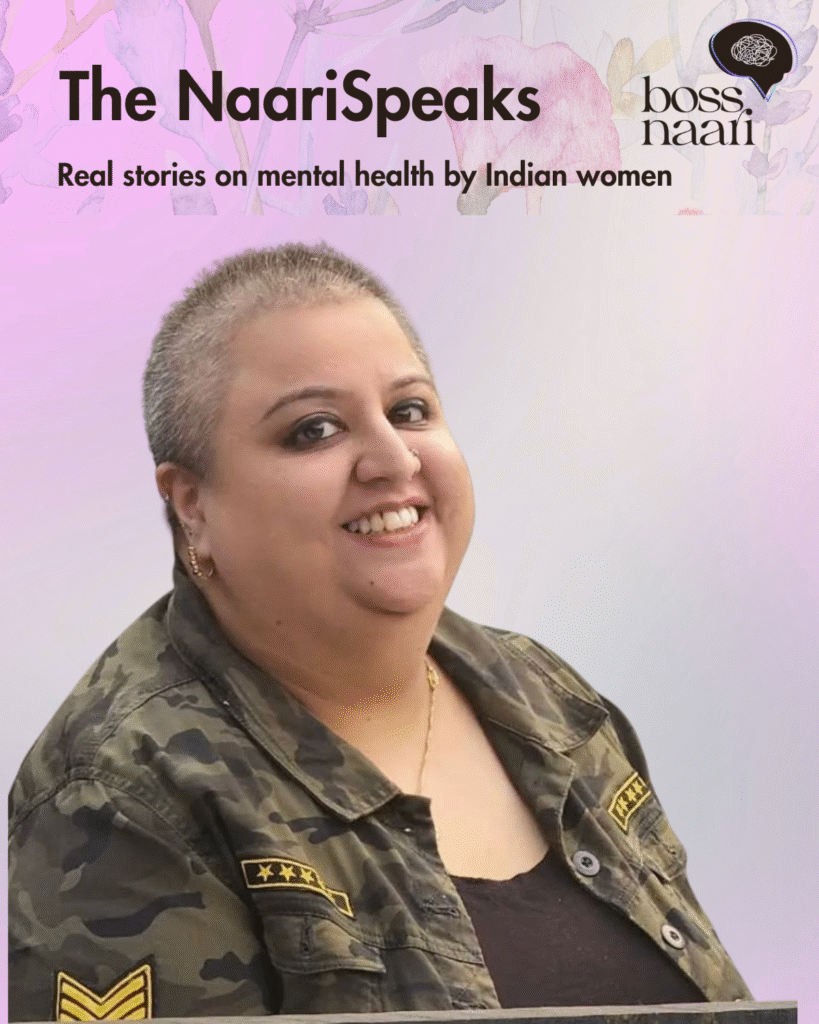
Boss Naari: How was your school life in class 9 when alopecia first appeared, and what impact did it have on your teenage years?
Ankita: A lot of my classmates felt that it was a contagious disease. Since I was losing my hair, many of them thought that if they came in contact with me, they might also lose their hair. Because of that, there was no acceptance at all.
There were derogatory and nasty comments. People would come to me and say things like, “You don’t have hair, you are bald.” All of those comments came in, and at that time, I felt bad. After I finished my 10th, I stopped stepping out of my home because I had this constant fear that people would make fun of me, laugh at me or say hurtful things. I told myself I would not go outside.
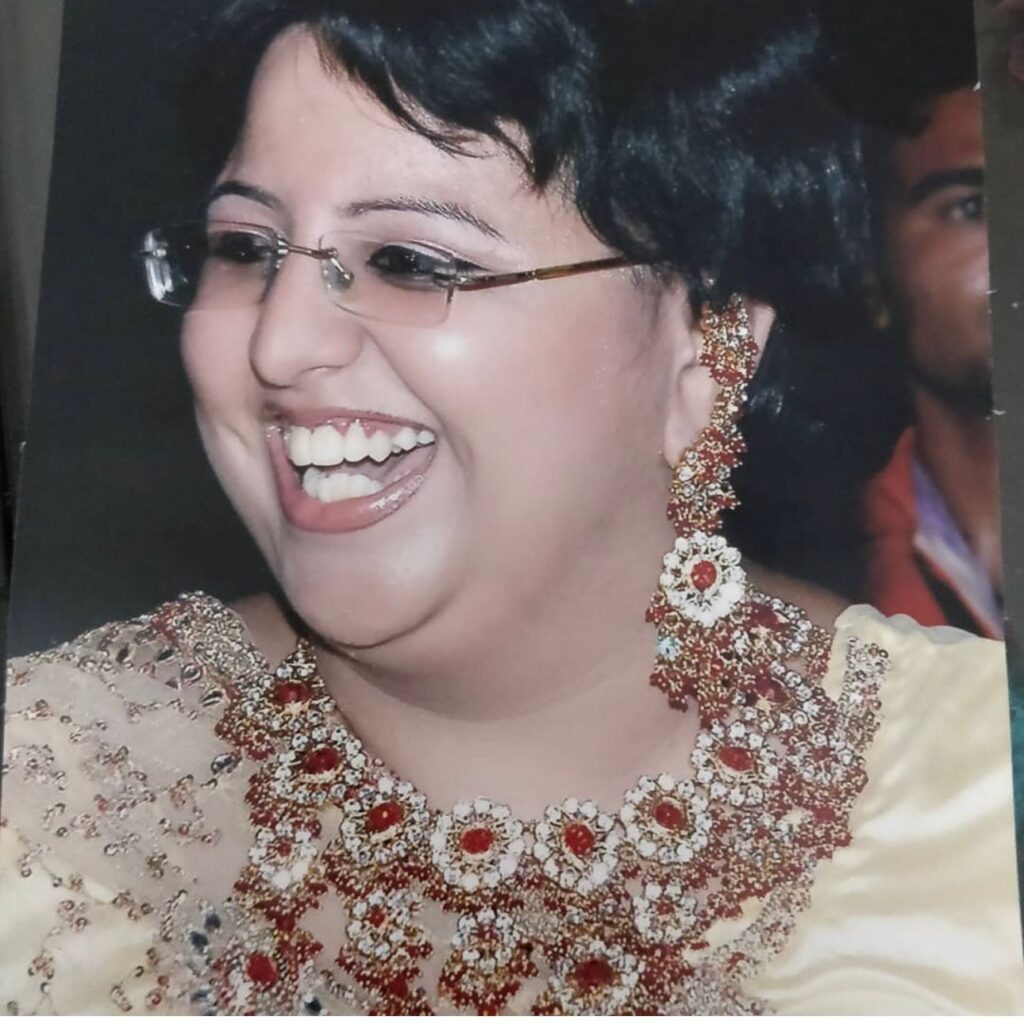
An old photo of Ankita when she had hair.
Boss Naari: Did your condition affect your studies or friendships in school, and was there anyone who supported you during that phase?
Ankita: During that time, I was in a relationship with a guy. He is up in the stars now but he was the one who told me to let it be. He said that I looked beautiful the way I was and that it was okay. He showed acceptance towards me, and although he is not there anymore, I hold on to that memory.
When I sought admission to college, the derogatory comments continued, and I would feel bad. Today, when I look back, I laugh at those same people. Many of them now want to come and talk to me. Over the years, I have grown and sailed through those struggles. Those comments have now become my fashion statement.
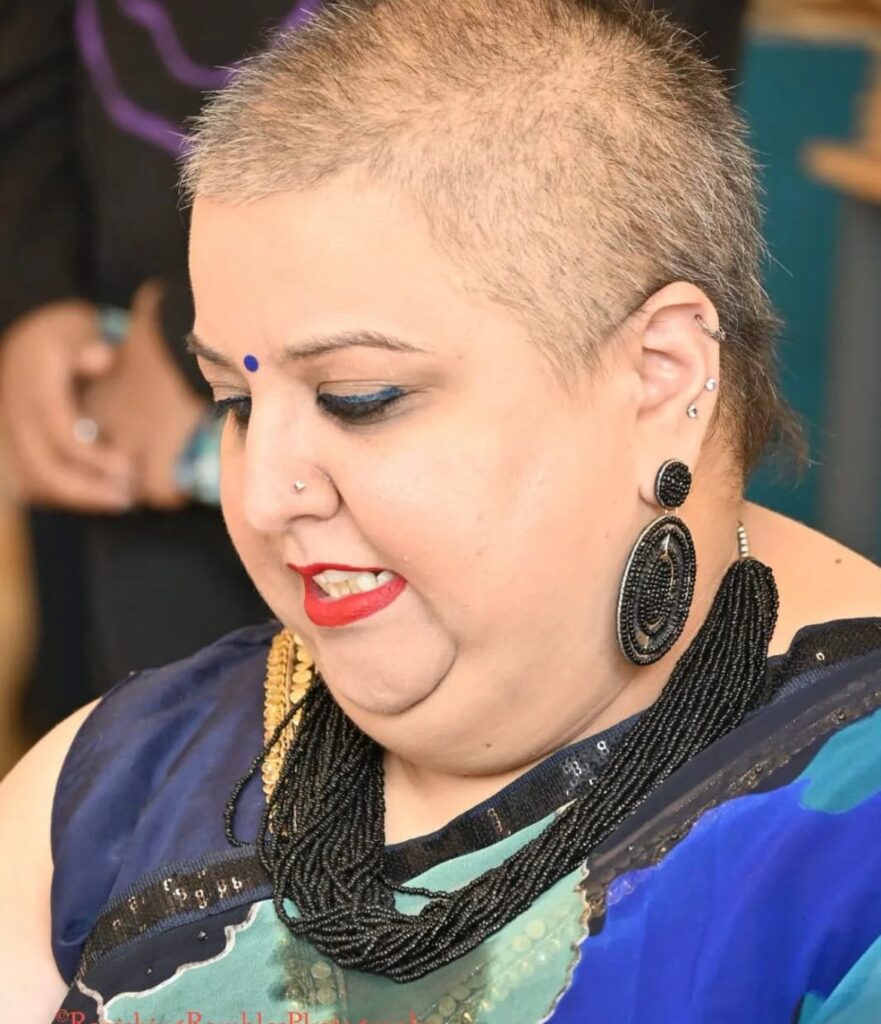
Embracing her bold and beautiful look
Boss Naari: Looking back, when did you realize that you had to accept your condition and live with it instead of seeking treatments or solutions?
Ankita: Back then, when I was in grade nine, I was just trying to learn and grow. It was a stage of life when people looked at my condition in a very wrong way. I had to face many issues, but eventually, I realised that it was time to accept my body, accept what was happening to me and simply be who I am.
After finishing college, one of my close friends and my mom sat me down and had an intervention with me. They helped me reflect that it had been 10 years of seeking treatment, and nothing was working. That was the turning point in my life. I was given two choices: either live with it or go for a transplant. I chose to live with it.
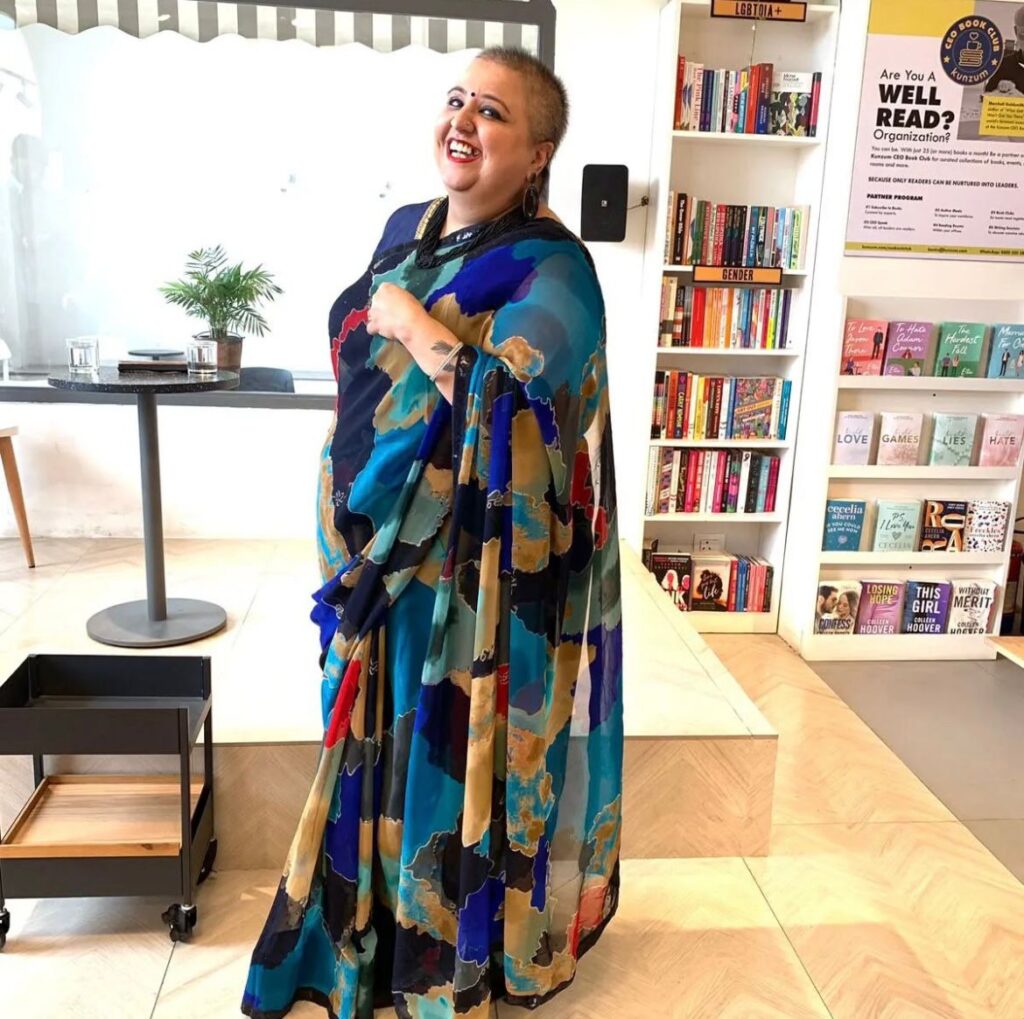
Ankita’s strength shines through her style
Boss Naari: Did you face difficulties in getting a job at that time?
Ankita: Yes, I did face rejections. Many of them were because of my physical appearance. There were derogatory remarks and comments made about the way I looked. Initially, I would feel bad and wonder why people were saying such things. Later, I realized that it was not worth holding on to. I told myself that I deserved something better and started thinking that way. That is how I moved on.
Boss Naari: How did your family support you through those years, and how did relatives or society respond to your condition?
Ankita: My mother has always been my rock. I lost my father when I was very young, and since then, she has been the only one who stood by me. Whatever decisions I made, whether it was refusing a hair transplant, not wearing a wig, stopping my medicines or even dealing with the weight gain, she supported me completely. Her approval was always very important to me.
Ever since I started doing podcasts and awareness work, some people have assumed that I do it for money or for sympathy. That is not true. I do not do this for money and I do not do this for sympathy. For me, if my story can inspire even one person sitting in some corner of the world, that is enough. India has crores of people, and if even one person feels inspired by my journey, my day is made. Over time, many people have approached me and said that my story is very inspiring.
There were classmates who had stopped talking to me during school, and now they have started talking to me again because they have seen the visibility and awareness that has come through my work. I have also heard many wrong things from relatives, but I have not allowed that to affect me. Years ago, I used to feel bad about not having hair or not being able to colour my hair, but today I have learned to live with it.
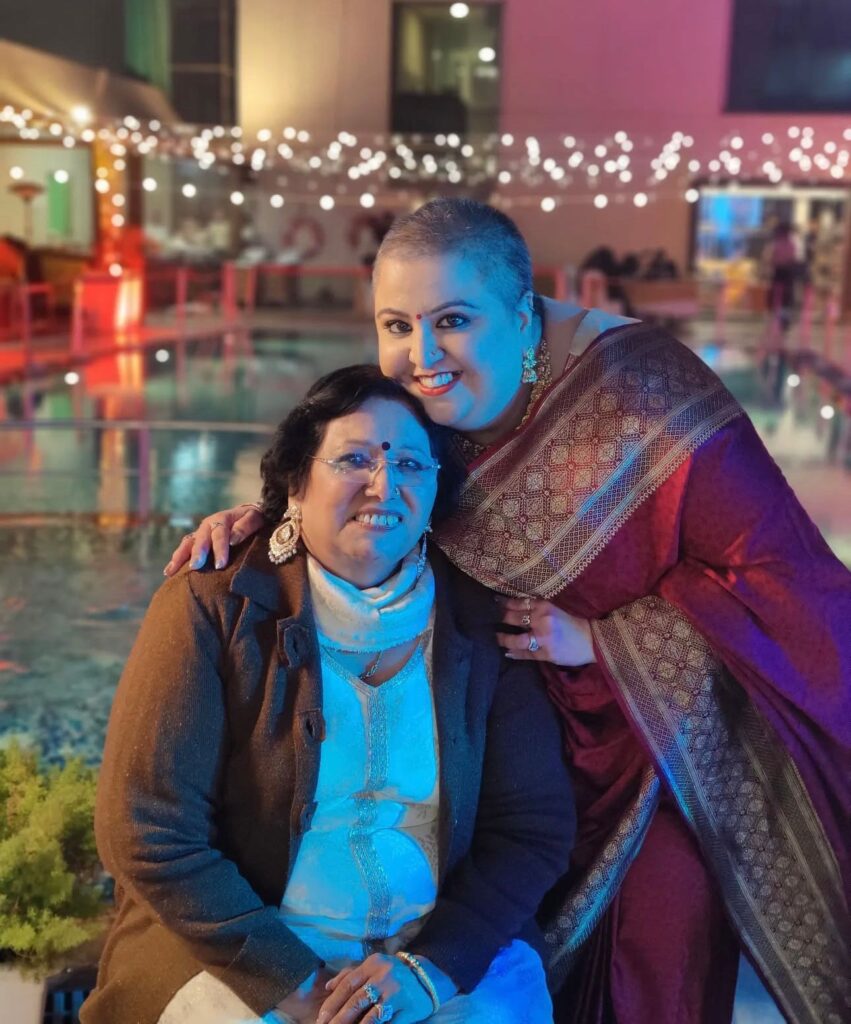
Snapshot of Ankita with her mom
Boss Naari: How has social acceptance around alopecia changed for you over the years, and how do you cope with people’s reactions today?
Ankita: Even today, I am unmarried. In our society, especially in India, appearance is extremely important, whether it is about weight, hair or anything else.
I remember visiting Dubai a few years ago. Nobody looked at me in a strange way. There was a time in India when people would come up to me and start talking about my hair problem or suggest hair transplant or weaving. Back then, I’d break down because it felt like an attack on me
Over time, I have realized that it is not worth breaking down over. It isn’t my fault that I have this condition. So it isn’t about me. There is no cure, and I have learnt to live with it.
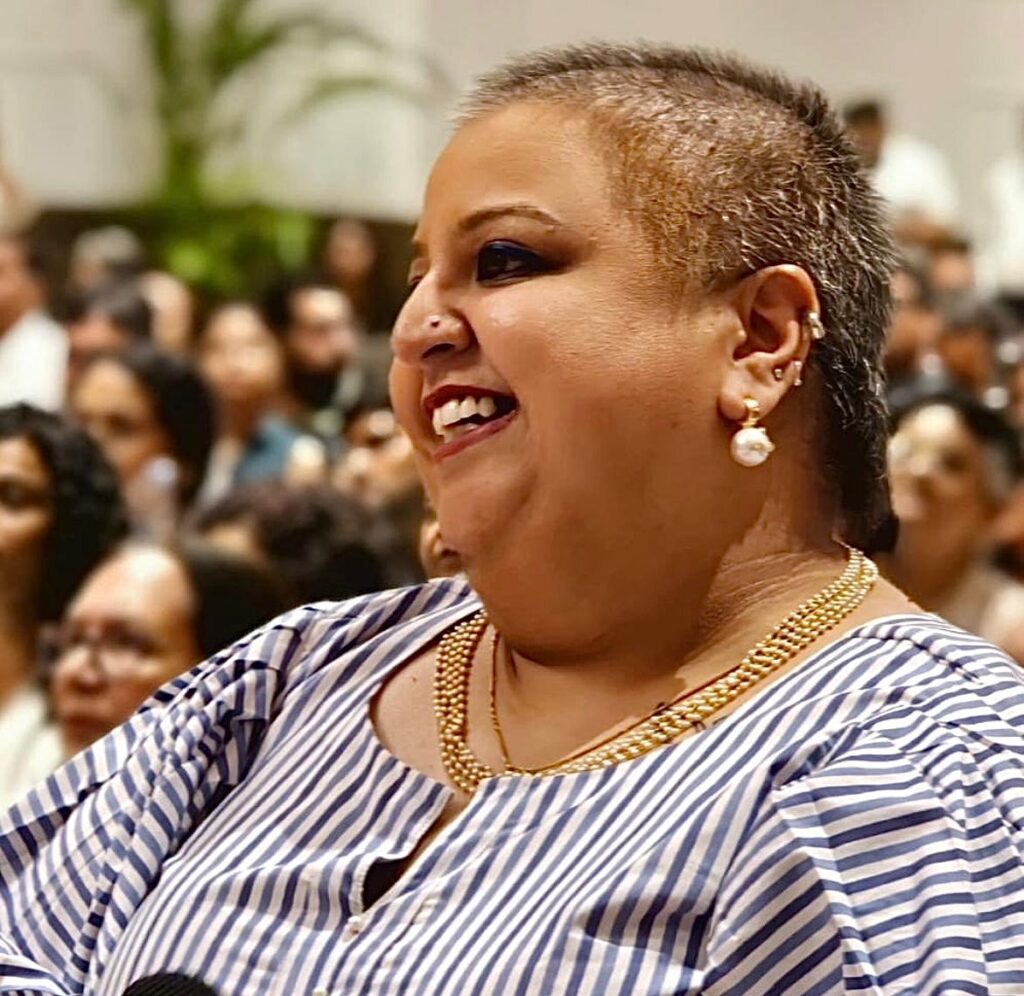
Ankita flaunts her look with confidence.
Boss Naari: What message would you like to share with others living with alopecia, especially young people who might be going through the same struggle today?
Ankita: I think I have a couple of messages to share. The first is, do not let the world affect you. Especially for women in Indian society, Looks are everything, that is how your value in the society is measured. Secondly, find the people that believe in you. For me, it was my mother, my family. Their support is very important.
Thirdly, find role models. I was inspired by a web series ‘Gone Case’ on Amazon prime,, where the protagonist was a Bharatnatyam dancer and starts losing her hair. I was also inspired by Ketaki, who doesn’t have any hair. She is so proud of herself. I believe she does not even have eyebrows and eyelashes, but she carries herself with so much dignity. Role models make you feel less lonely. They inspire you to believe it’s not that bad as it may seem in your head
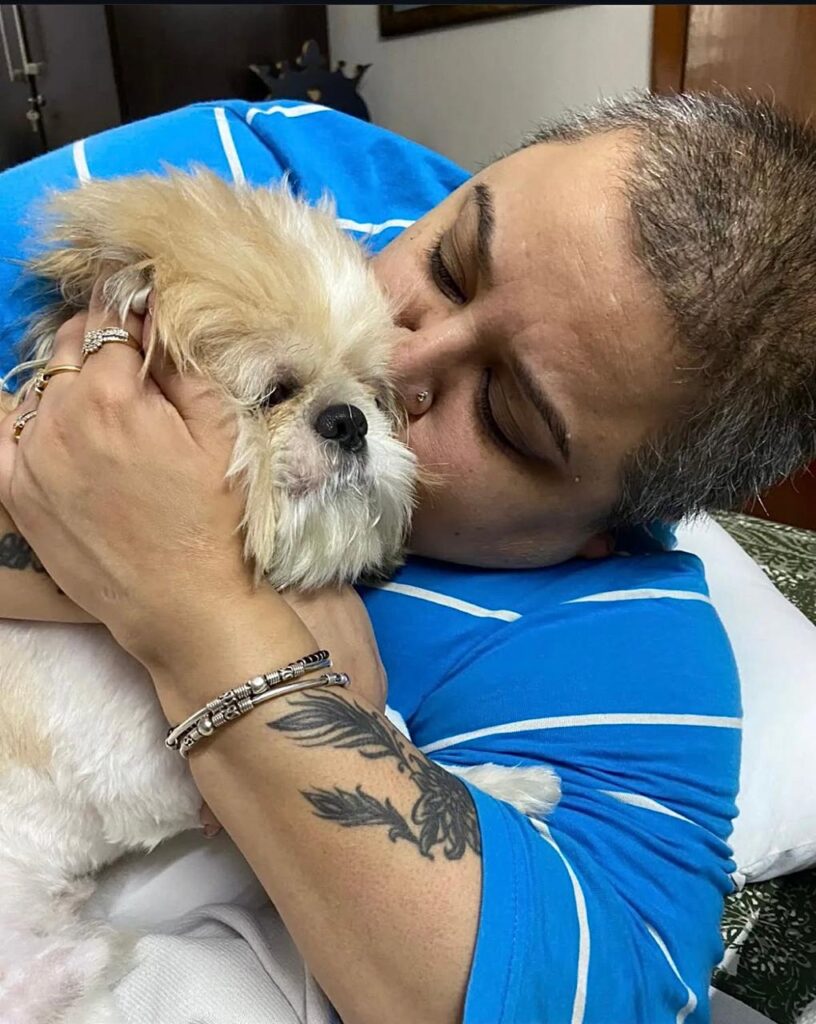
Ankita with her pet dog
Boss Naari: What does beauty mean to you?
Ankita: For me, beauty is much more than physical appearance. Physical appearance is secondary. If a person has a good heart and respects me as an individual, that is what matters. If someone comes to me and comments on my looks, I avoid them altogether. For me, what counts is the heart.
Over a period of time, maybe it is age or simply experience, I have stopped caring about the world. I have a hair problem, that is my problem. I am overweight, that is also my problem. If someone does not want to talk to me or go out with me because they feel people will stare at them for being with me, I am absolutely fine with that. Their acceptance doesn’t matter.
Want to be featured on NaariSpeaks?
Do you have a story that could inspire another woman or help someone going through a similar journey? We’d love to hear from you and share your voice with our community.
Liked what you read?
Sign up and get the latest blog posts delivered straight to your inbox.
We respect your privacy
Related Arcticles

Down syndrome didn’t define her; dance did
Down syndrome didn’t define her; dance did Dance became the language of Sayalee Agavane, a Down Syndrome professional dance artist who has transformed every stage

Raising a child with Down Syndrome
Raising a child with Down Syndrome Parenting a child with Down syndrome is a journey filled with unique experiences, and the early days of acceptance

Living with extra chromosomes
Living with an extra chromosome Down syndrome cannot stop anyone from achieving their dreams, and Madhumati Indalkar is a beautiful example of that. Madhumati has
